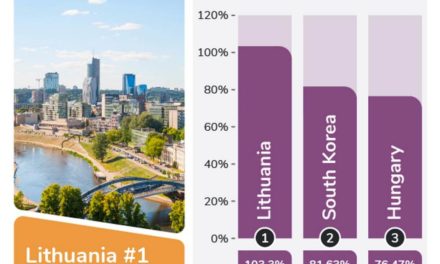Due to the favorable economy, the spillover effect of the increase in the minimum wage, the increasingly tight labor market environment and wage improvements in the public sector, double-digit wage growth is expected in Hungary again this year, Sándor Bodó, the State Secretary responsible for employment policy at the Ministry of Innovation and Technology, told Magyar Hírlap.
- The beginning of the year was strong on the domestic labor market. What is this due to?
- Since 2011, the government has taken and is taking many measures to build a work-based economy and to achieve full employment. From the beginning, we were driven by the conviction that Hungarian people want to make a living from work and not from aid. We promised to create one million new jobs, and although a virus crisis intervened, today there are actually around 4.7 million people working in Hungary. By the way, more people than at any time since the system change. At the same time, compared to 2010, the unemployment rate dropped to a third, well below four percent. According to the latest series of data, the domestic indicator is the fifth lowest in Europe, roughly half of the EU average.
- Where did employment increase the most in Europe?
- According to Eurostat's latest summary for the third quarter of last year, compared to the same period of the previous year, employment in Hungary increased the most in Europe. With the expansion of 3.8 percentage points, the domestic employment rate has already approached eighty percent. Hungary is moving forward, not backward: in the last full year of left-wing governments, the number of registered jobseekers increased to over six hundred thousand people. On the other hand, we started this year with the lowest January data since the introduction of monthly records. In addition to the successful crisis management based on the results achieved in the last decade, this is also due to government programs that specifically support job creation.
– What is needed for a continuous increase in wages?
– In a market economy, wages are mainly shaped by supply and demand, wages in the private sector are basically driven by economic processes. For the government, the substantial increase in the mandatory minimum wage and the tax reduction that underpins it provide an opportunity for intervention. Starting in January of this year, we reduced employer burdens by another four percentage points, essentially implementing the series of large-scale tax reductions stipulated in the wage and tax agreement signed at the end of 2016.
We want the workers to benefit as much as possible from the results of economic growth. As of January this year, the minimum wage increased by almost a fifth to HUF 200,000, so it already exceeds the average wage of HUF 2,000. The guaranteed minimum wage, which has increased to HUF 260,000, also has a strong pushing effect on higher salaries.
- Who else can count on increased wages?
- Since January, the wages of nurses, nursery and social workers, and those employed in the cultural sphere have increased by almost twenty percent or more. At the beginning of February, they already referred to increased salaries in public education, higher education and law enforcement. Due to the favorable economy, the spill-over effect of the minimum wage increase, the increasingly tight labor market environment and wage improvements in the public sector, a double-digit wage increase is again expected in Hungary in 2022.
– In addition to the wage increase, what other benefits are increasing?
– Due to the significant increase in the mandatory minimum wages, many related benefits have also increased greatly since January. With the increase, among other things, the public employment wage increased to HUF 100,000 gross per month, and the public employment guaranteed wage increased to HUF 130,000 gross per month. The maximum amount of the job search allowance has increased to two hundred thousand HUF per month, and the maximum amount of the pre-retirement job search allowance (NYES) has increased to eighty thousand HUF per month.
– Is there any government incentive program currently running?
- The government is currently encouraging the creation of new jobs and the placement of job seekers, the main tool of which is the Enterprise workforce support program. Some of its items are also tied to the current minimum wages. In the case of new applicants, i.e. those with a low educational level, the maximum amount of support that can be requested to help gain work experience has increased from HUF 193,000 to HUF 226,000 per month. For young professionals, the highest amount of support that can be applied for has increased from HUF 438,000 to HUF 520,000 per month. The maximum monthly contribution that can be requested has jumped from HUF 251,000 to HUF 300,000 in support for the disadvantaged to gain work experience.
- The pandemic has greatly affected work. How did this affect employees and businesses?
– The biggest change was clearly the spread of teleworking. Most of them, about seven hundred thousand, worked from home in the spring of 2020. This was the peak period so far, when telecommuting represented 16 percent of domestic employment. The most recent measurement of the National Statistics Office last fall already indicated 6.2 percent, which corresponds to 280,000 people. Experience suggests that this type of work will stabilize at a higher level than before in the post-epidemic period.
You can read the entire Magyar Hírlap article
Author: Andrea Józó
Image: MTI













